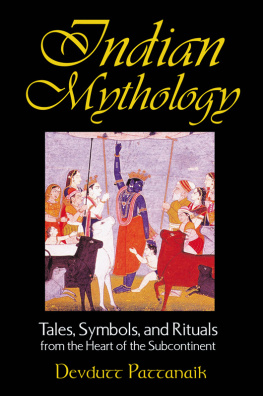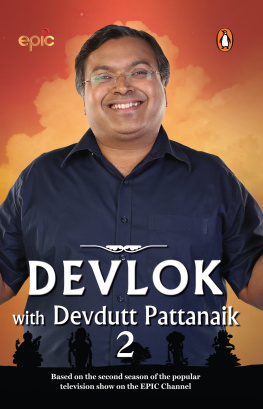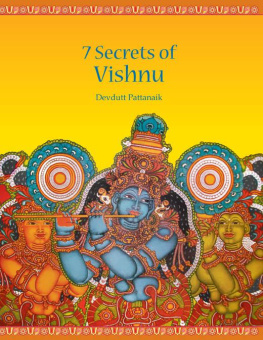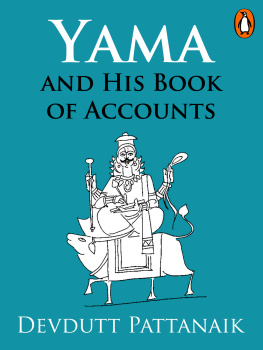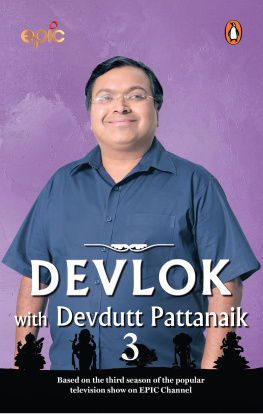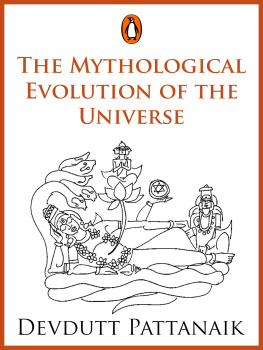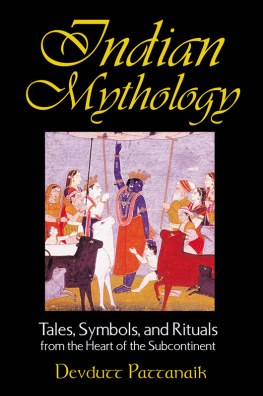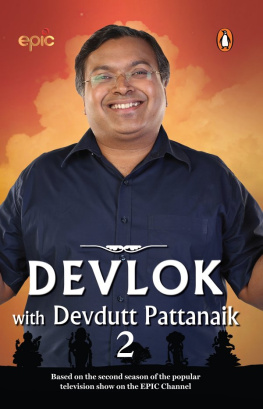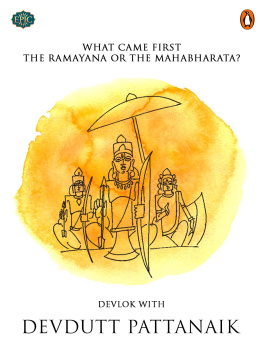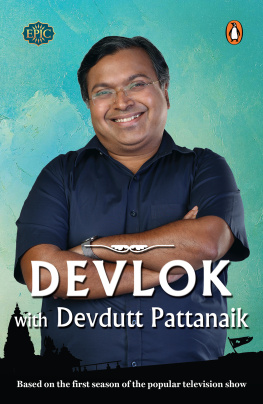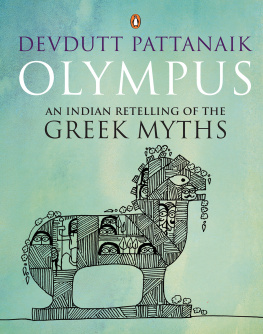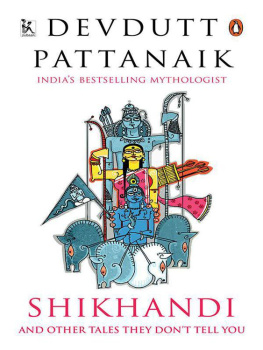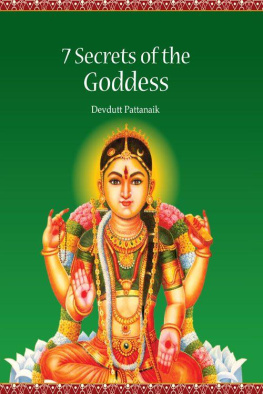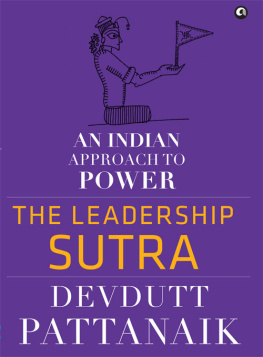Table of Contents
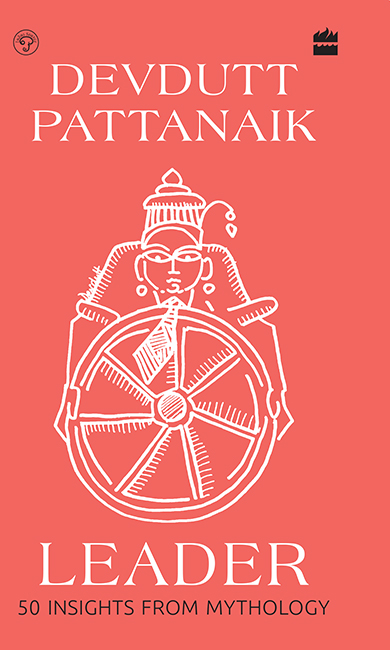
LEADER
50 INSIGHTS FROM MYTHOLOGY
Devdutt Pattanaik
Illustrations by the author

Within infinite myths lies an eternal truth
But who sees it all?
Varuna has but a thousand eyes
Indra has a hundred
You and I, only two
Contents
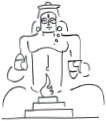
W hen commenting on the great Indian epic, the Mahabharata, people often point to the question raised by Draupadi: Does a man who has gambled himself away have the right to gamble away his wife? But very few have asked: Does a king have the right to gamble away his kingdom? What gives the Pandavas, in general, and Yudhishthira, in particular, the right to gamble away his kingdom? A king is not the owner of the kingdom; he is its custodian.
If the kingdom is a cow that gives milk, the king is the cowherd. That is the traditional model of a leader in Hindu mythology. The king takes care of the kingdom and the kingdom nourishes him. He defends the kingdom and the kingdom empowers him. A cowherd cannot exist without a cow and a cow isnt safe without a cowherd. Its a symbiotic relationship. This is the essence of a kings role: to protect the cow, help it produce more calves, enable her to multiply and thrive, and in the process create more cowherds. This is growthgrowth for the cow and growth for the cowherd.
In the Mahabharata, there is a great debate on who should be king. Should kingship be determined by bloodline or meritocracy? After much debate and discussion, and violence, which even involves an assassination attempt on the Pandavas, it is decided to divide the lands. The Pandavas get the underdeveloped half called Khandavaprastha, while their cousins, the Kauravas, get the prosperous city of Hastinapur. With the help of Krishna, the Pandavas transform Khandavaprastha into a great city called Indraprastha, which becomes the envy of the world. With the help of Krishna, the Pandavas even become kings. But then, Krishna leaves, and in his absence they gamble the kingdom away. It is almost as if, while they have the capacity to be king, they lack the attitude of kingship.
And so, Krishna offers them no reprieve when they have to suffer twelve years of exile in the forest, living in abject poverty, followed by a year of humiliation when the former kings live in hiding as servants in another kings palace. During this time there are tales of how each brother gets a lesson in humility and patience. In one episode, the brothers reach a lake where a heron warns them against drinking the water until they answer its question; the impatient Pandavas drink nevertheless and die, all except Yudhishthira. Yudhishthira pauses, answers the question, and is then allowed to drink. This displays a shift in character. The man, who, without thinking, gambled away his kingdom, is now ready to pause and think and question his actions and listen to good counsel before taking an action. He is suddenly more patient and prudent.
The heron then tells Yudhishthira that only one of his brothers will be brought back from the dead. He is asked to choose. Save Nakula, he says. Why a weak stepbrother, asks the heron, when you might as well save a strong brother like Bhima or a skilled one like Arjuna? To this Yudhishthira says, My father had two wives. I, the son of his first wife, Kunti, am alive. Let one son of the second wife, Madri, live too. Here again we see a transformation. Nakula was the first of the five brothers to be gambled away in the game of dice. Thus, the unwanted stepbrother, who mattered least in the gambling hall, matters most in the forest. Yudhishthira has learnt the lessons of Raj-dharma, that it is not due to his greatness and grandeur that the crown is placed on his head. He exists for others; he exists for the weakest in his kingdom; he exists to help the helpless. Otherwise, his kingdom is no different from the jungle where might is right. Otherwise, he is no different from an alpha male.
Krishna, the supreme divine cowherd, thus acts as a coach in the Mahabharata. He is not king as in his previous life of Rama (whose story is told in the Ramayana). Here he plays lowly roles as cowherd and charioteer, but acts as a kingmaker. He knows that it is not just about skill alone (turning the wilderness into a rich kingdom). It is about attitude. And to shift attitude, sometimes, one has to be dragged through miserythirteen years of forest exile.


T he Bible tells the tale of the prophet, Nathan, who sought justice from his king, David, for a poor man who had been wronged by a rich man. Rather than taking one from his own flock to feed a traveller, the rich man claimed the one lamb that the poor neighbour dearly loved. David was understandably upset when he heard the complaint. He decreed that the rich man should die. No sooner did he take this decision than Nathan revealed that the rich man in his story was none other than David, a king with many wives. The poor neighbour was the Hittite, Uriah, with whose only wife, Bathsheba, the king had had an adulterous affair. By using the parable, Nathan had tricked the king into judging himself. He had made the king realize his own hypocrisy: quick to judge others but not himself.
Why did Nathan not simply tell the king that his actions were wrong? Would the king have heard him? Maybe he would have denied the crime, or simply made excuses for it. Despite being a representative of God, the prophet was wary of the kings ego and anger. And so he used the Trojan Horse method to address the sensitive issue.
The ability to communicate with a king with deference and dexterity is known in Sanskrit as Sabha-chaturya, which literally translated means tactfulness-in-court. It is a trait that ministers and courtiers had to possess if they wished to survive in court and get their jobs done. It is a trait that people who work with leaders must possess. It is a trait that even leaders need to possess if they wish to lead.
The foundation for this skill lies in the observation that people are uncomfortable with the truth, especially when it shows them in a bad light or has consequences that could affect them adversely. When confronted with it, they react negativelywith rage or denial. They may get defensive or simply reject the submission. So the work does not get done. One needs strategic communication. One needs Sabha-chaturya.
Rathodji mastered the art of Sabha-chaturya long ago. He knew his boss, Khilachand, was a brilliant man with a rags-to-riches story. He also knew his boss had an ego the size of a mountain. He refused to accept or admit a mistake. In fact, if a mistake was pointed out, he would do everything in his power to justify it and stick to his guns. Khilachand was very fond of a distant cousin. So when a candidate presented himself before Khilachand with the cousins recommendation, he was, without much consideration, appointed manager in one of the many oil depots he owned.
The candidate was a good-for-nothing fellow. He did no work and this caused a great deal of problems in the smooth running of operations. But no one dared tell this to Khilachand. To do so would mean that Khilachand was a fool to appoint a candidate purely on recommendation without checking credentials. And Khilachand did not appreciate being taken for a fool. In rage, just to prove he was right and everyone else who thought he was a fool was wrong, he would simply sack the guy who complained and give the candidate a raise and maybe even a promotion. It was irrational, but thats the way he was. Rathodji knew this and so, when the problem was presented to him, he pondered long and hard on how to give Khilachand the message without upsetting him and making matters worse.


